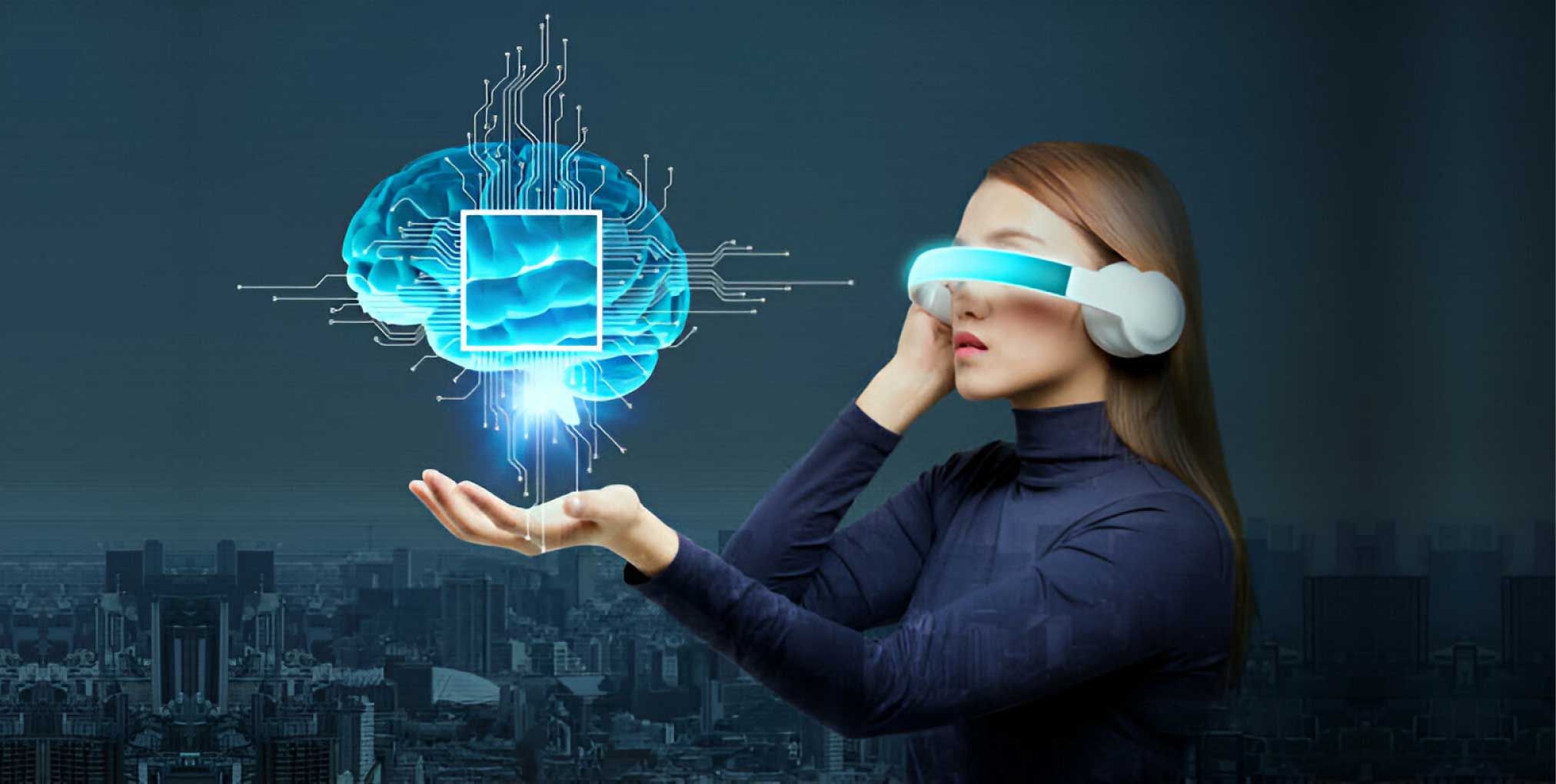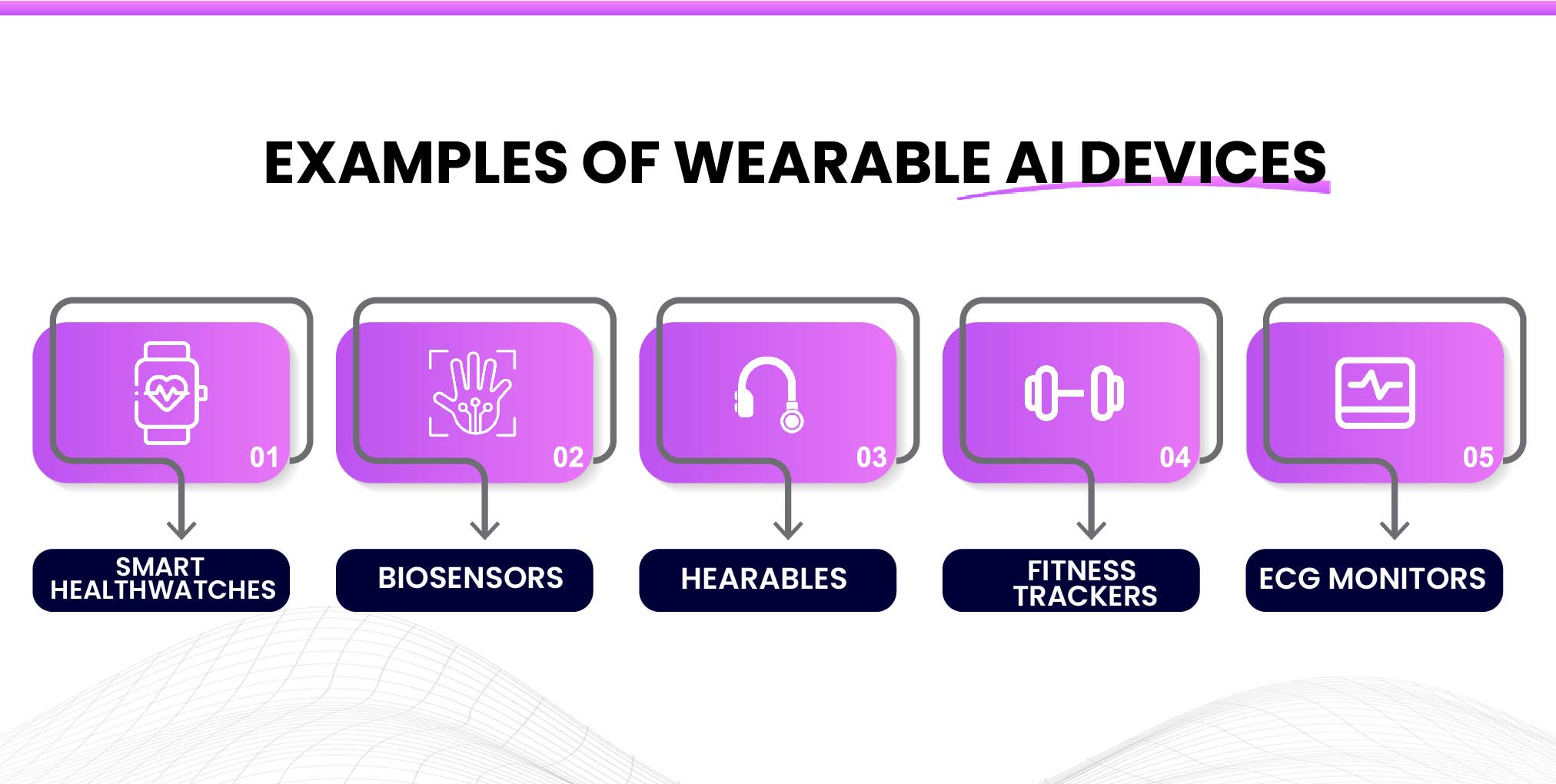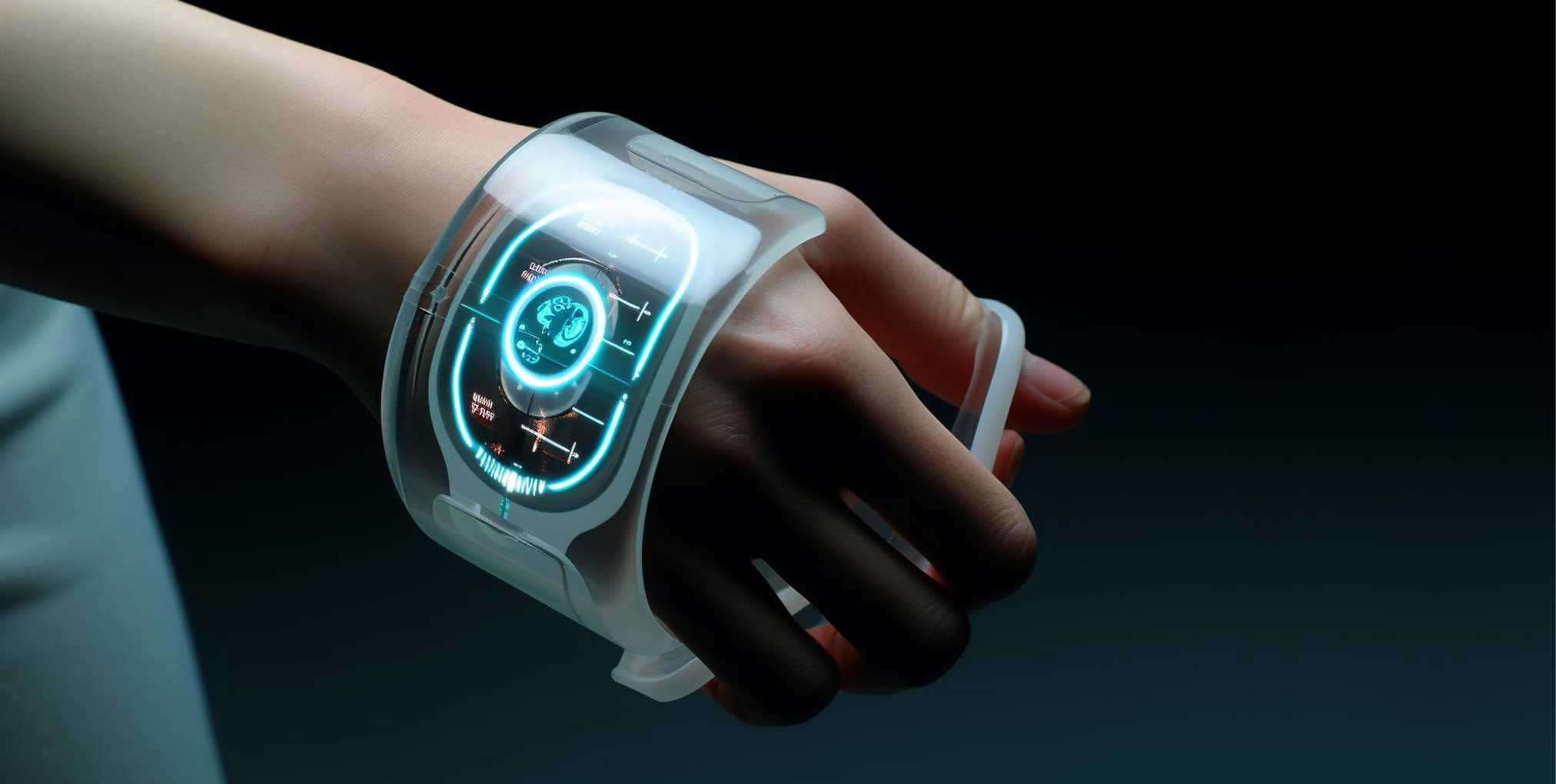

April 24, 2024
Do you know that chronic diseases are one of the biggest reasons behind global deaths? According to the World Health Organization, chronic diseases, also known as Non-communicable diseases, result in 74% of global deaths.
This situation demanded attention and a solution to keep a close eye on people’s health. That’s where wearable AI technologies have emerged as a solution.
The healthcare industry is constantly adopting the latest technologies and digital health tools to provide exceptional patient care. Amidst hundreds of technologies, wearable AI devices are among the best innovations that are transforming the healthcare sector.
These devices empower users to monitor vital health signs, manage sleep, provide recommendations about healthy lifestyles, and provide real-time data for chronic disease management. In this article, we will delve deeper into how wearable AI technologies have helped provide exceptional patient care and monitor their health progress.

Many of you might be using wearable healthcare technology right now. It is an electronic device that a human wears on his body parts. It can be smartwatches, medical devices, biosensor patches, etc. With the advent of these devices, access to health data is not just limited to clinical settings.
This AI wearable technology is not new to this world, but it has been evolving over time. Initially, most wearable devices only measured your heart rate. Today, they do much more than just measuring your heart rate.
With the advancement in technology, these smart wearables can measure your glucose level, blood pressure, heart rate, sleep quality, and many more things. Moreover, if you are running or jogging with your friends, these wearable devices warn you to take a rest after a certain level.
Its enormous benefits have increased its adoption among people. According to Grand View Research, the global wearable AI market size was $21.2 billion in 2022 and is forecasted to grow at a CAGR of 29.8% from 2023 to 2030.

You might be questioning yourself what are the different types of wearable medical devices that you can buy to track your health. We all know that technology is advancing, and with the advancement in technology, new devices are emerging to cater to health concerns. However, here are some of the best examples of wearable AI devices:
Smartwatches have been relevant for a long time. Initially, they serve as a means to just attend calls and send messages. Today, they do much more than manage calls. They are equipped with cutting-edge technologies that help users stay informed about their health aspects, including stress level, heart rate, sleep required, and any other anomalies.
Several known brands are releasing their smartwatches with exceptional capabilities, including electrocardiogram (ECG) readings, to track health. The healthcare industry can benefit heavily from these smart health watches as they enable remote patient monitoring.
Self-adhesive skin patches have gained significant attention from users in the last few years. These are patches with biosensors that empower healthcare professionals to provide exceptional care with the help of real-time data. But how do they gather the data?
When a user moves, these biosensor skin patches measure several crucial factors, including heart rate, temperature, respiratory rate, etc. This AI wearable technology can significantly improve patient outcomes by keeping an eye on pivotal health factors and preventing health concerns in a timely manner.
Users suffering from hearing concerns can benefit from AI ear wearables technology. Hearables are usually micro-computers powered by AI and are equipped with biometric sensors. They can cut the unnecessary noise and help you hear clearly.
These hearables fit in the user’s ear and are suitable for long-term monitoring. They enable professionals to detect any hearing loss abnormalities earlier than usual so that they can be prevented by taking necessary measures. These devices have made life easier and healthier for everyone.
One of the most commonly used wearable AI devices is fitness or activity trackers. For those who don’t know, these are wristbands with sensors that track your heart rate, pulse rate, calories burnt, and the number of steps you have walked in a day.
You can sync these trackers with your smartphone apps. You can manage all your health parameters with the ease of your smartphone. These apps can further recommend users healthy lifestyle factors to improve their health. Fitbit Charge 6, Garmin Vivomove Trend, and Oura Ring Gen3 are some examples of fitness and activity trackers to monitor health conveniently.
Wearable ECG monitors are specifically designed for patients suffering from cardiovascular health concerns. These medical devices have the ability to detect arrhythmias and any other abnormalities. This data is available to doctors and physicians who can take the necessary steps to ensure effective patient care.
Yes, these health wearable devices do quite similar tasks to smartwatches, but what sets them apart from smartwatches is their capability to measure electrocardiograms. These wearable ECG monitors can track distance, pace, elevation, etc.
Wearable AI technologies provide a multitude of opportunities to improve patient health. Smart wearables collect human data constantly, including heart rate, glucose levels, sleep patterns, etc. They can analyze health patterns that empower professionals to prevent potential health issues.
These apps are synchronized with mobile apps that can suggest tailored diet, exercise, and stress management plans for users. It helps users to make more informed decisions and develop better health habits. Moreover, these devices enable telemedicine, which can save significant time for both healthcare providers and patients.
Users can share their real-time data with doctors and receive personalized medication that enhances their chances of living a healthy life. Moreover, any changes in health parameters are accessed earlier to alert users and physicians about any potential health concern and allow proactive intervention.
Chronic diseases require continuous monitoring due to complex health concerns. It necessitates an innovative AI solution that empowers healthcare practitioners to manage patient health effectively. This concern is addressed with the emergence of wearable AI technology.
Chronic disease management is more convenient than ever due to the advent of wearable AI devices. These devices have improved the lifestyles of hundreds of thousands of users. They not only enhance user engagement but also keep users connected with healthcare professionals. Users can receive personalized care and recommendations.
But why provide personalized recommendations to people with the same health concerns? The answer is their different lifestyles, activity habits, and psychology. It helps to improve patient outcomes while significantly enhancing their experience. These smart devices promote adherence to treatment plans with the help of reminders for taking medicines and exercise routines.

The integration of AI into wearable devices has sparked a revolution in the healthcare industry. The future of wearable AI technologies is even more exciting.
Advancements in technology will give rise to unique wearable devices, including advanced smart clothing, jewelry, etc. Wearable medical devices will be smarter and more accurate and will be able to provide solutions for numerous other medical issues.
AI wearable technology offers endless opportunities to transform healthcare processes, including patient monitoring and chronic disease management. Wearable medical health devices will empower healthcare professionals to gain insights into human data, provide more personalized treatment plans and remote patient monitoring, and promote healthier lifestyles.
These devices will benefit not only physicians and doctors but also patients by reducing regular visits and giving a sense of autonomy by having real-time insights into their health.
Wearable AI technologies are continuously developing and improving. Undoubtedly, these innovations offer numerous benefits, but the future of wearable medical devices seems even brighter.
People will continue adopting these smart health devices. These devices are poised to improve patient monitoring and chronic disease management by addressing current limitations. Moreover, these devices will become more accurate and precise due to technological advancements.
Xeven Solutions is a leading AI development company with a proven track record of developing cutting-edge healthcare AI solutions. Whether you are interested in AI chatbot development, telehealth, or wearable AI devices, trust Xeven Solutions as your end-to-end partner. We ensure that you provide exceptional health services that improve patient health outcomes.